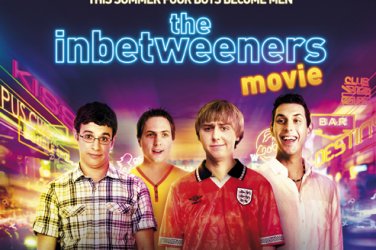representation in the inbetweeners ( Ben Palmer 2011)

- age
- ethnicity
- gender
- social class and status
how are the main charecters introduced into the trailer for fish tank?

media effects
do media representations of young people effect how they are percieved?
if so how does this effect occur?
hypodermic model
cultivation theory- if you see enough viloence and criminal behavouir on the tv you will believe it is happening in real life
copy cat theory- copy what you see.
moral panic- makes you beleive that its happening and creates panic in society. news apers porduce artivcles on british youth culture and in turn create a panic for the rest of society thinking omg this is happening? this sets the british youths to be antagonist. you then have the government and the police becoming the protagonists turing the hegemoney on its head
contempory british social realisim
what do you understand by contempory social realism?
- social realist films attempt to portray issues facing ordinary people in their social sitiuations
- social realists films try too show that society and the capatilist system leads too the exploiltation of the poor or disposessed
- these groups are shown as vicitms of the system rather than being totally responsible for thier own behaviour
- these places represent an everywhere of britian where relationships are broken down and where people have become isolated and diconected. their britishness is thier culturally specific address to audiences at home ( murray, 2008)
audience
- social realists films which address social problems in this country offfer a very different version of collective identity than british films which are also aimed at an american audience. films like notting hill and love actually reach a much bigger audience than the lower budget social realist films
- social realist films are aimed at predominantly british audience
- if many more people see the more comercial films consider which version of our collective identity is more powerful or has the most impact
analysing representation of collective identity
when comparing how britishness and our colective identity is represented in films consider the following questions
- who is being represented
- who is representing them?
- how are they being represented?
- what seems to be the intentions of the represenations
- what is the dominant dicourse? ( world view offered by the film)
- what range of readings are there
- look for alternative discourses
collective identity
the media contributes to our sense of collective identity but there are many different versions that change overr time
representations can cause problems for the groups being represented because marginalized groups have little control over thier representation/ stereo typiong
the social context in which the film or tv program is made to influenses the messages values dominant
encoding- decoding ( stuart hall 19800 ACTIVE AUDIENCE THEORY
- encoding-decoding is an active audience theory developed by stuart hall which examines the relationship between a text and its audience
- encoding is the process by which a text is constructed by its producers
- decoding is the process by which a text is constructed by its producers
- decoding is the prexeess by which the audience reads understands and interprets a text
- hall states that texts are polysemic, meaning they many be read differently by different people depending o thier identity cultural knowledge and opinions
prefered reading/ dominant hegemonic
when an audice interprets the messagee as it was meant to be understood they are operating in the dominant code. the position of the proffesional broadcasters and the media producers is that messages are3 already sinigried within the hegemony manner to which they are accustomed. proffesional codes for media oranisaxto serve to contribute to this type of industural psychology
the negotiated theory
not all audiences many understand what media priducers take for granted there many be some acknowledgment og different understanding:
decoding within the negotiated versions contains a mixture of adaptive and oppostional elements it acknowledges the legitimacy of the hegemonic definations to make the grand siginications which at a more restricted situational level it makesd its own ground rules it operated with execptional rule
oppositional reading/ 'counter- hegemony'
when media consumers understand the contextuakl and literary inflections of text yet decode the messages by a completly oppositional means this is the globally contrary postion/ oppositional reading
stereo typing
why do we stereo type?
it puts people in too catigories and boxes so that we can recognise them easily
No comments:
Post a Comment